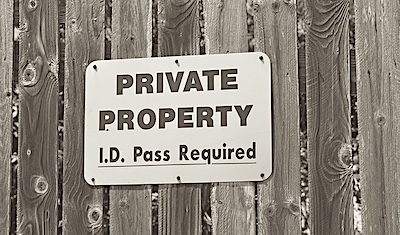Unification and consensus have their roots in empathy
Last week in the American political sphere there was a lot of talk about unifying people. That talk was mostly rhetoric without much, if any, substance behind it.
In the political world, “I will be a unifier” too often is code for “those who disagree will be powerless to stop me.”
In the business world, “I will build consensus” too often is code for “those who disagree will be powerless to stop me.”
But that’s not how unification and consensus work.
To unify means to make into a unit or coherent whole. Consensus means group solidarity in sentiment and belief. These words implicitly include everyone in a given population. They are inclusive words, often used to sugar-coat what is, in fact, exclusion.
If you have a 12-person group where 10 of them agree and two dissent, that’s not consensus. It’s a majority. If those two dissenters are then cut out (or opt out) of executing on the majority’s decision, that’s not unity. It’s division and exclusion.
Uniting an in-group against an out-group is actually division
These thoughts about unity and consensus were on my mind this morning not just because of the rhetoric flowing from the Republican convention last week. I was also contemplating empathy because of the chapter I’m writing for an upcoming book.
The chapter is about compassion fatigue, which is (loosely stated) the loss of the ability to feel empathy. In the chapter, I focus on my own ability to empathize with my coaching clients in certain situations.
So, as I observed the ongoing storm of political drama coming out of Detroit, I was struck by how the “unifiers” were villainizing everyone that might disagree with them even the tiniest little bit. They were intentionally and systematically destroying their followers’ ability to feel empathy for outsiders, by “unifying” those in the room against everyone else.

Empathy comes, in part, from embracing a perspective that recognizes everyone’s common humanity while honoring every individual’s unique experience. I learned this lesson early on in my life, but many experiences have reinforced a twin set of truths.
1. Someone else’s greater suffering does not invalidate your own.
To have empathy for others, you must empathize with yourself.
If someone else has it worse than you, you’re still allowed to feel the feelings you have and recognize your own suffering as legitimate.
I saw this especially keenly when I worked at Cancer Support Community. Cancer patients enduring difficult treatments would talk about how they really shouldn’t complain because there were others who had it so much worse.
There’s wisdom in keeping clear perspective that allows you to feel gratitude even in the face of terrible difficulty. Recognizing that others have it worse can help you tap into positive feelings that provide hope. Without hope, despair can set in. When despair sets in, it builds on itself and can become debilitating and destructive.
Taking that “I shouldn’t complain” attitude too far, however, can lead to invalidation of your own feelings. Those cancer patients I spoke with were absolutely deserving of sympathy, empathy, and caring from others. They were suffering. Recognizing that others were suffering worse could help them find hope in their own dark situation, but taking that too far could push them into a place of self-denial where they would lose empathy for themselves.
2. Someone else’s lesser suffering is still suffering.
To have empathy for others, you must recognize that their experience is legitimate to them, no matter what you personally think of it.
This is one I have to remind myself of frequently. Some of the coaching clients who come to me through their free workplace benefit really need a dose of perspective. They have relatively mild, pedestrian situations they need to work through, but to them the problems seem outsized and full of drama and urgency.
Some examples: Their boss isn’t proactively offering them a promotion after a year of good performance. They have moderate feelings of self-doubt. They feel nervous about giving presentations. They are unsure what their next career move should be.
In moments like these, it’s hard for me not to think back to Cancer Support Community. I remember especially the four-time cancer survivor who told me she’d just been diagnosed with a fifth cancer. She was utterly devastated. Having gone through treatment four times, her body was weak and fragile, and she wasn’t sure it could stand a fifth treatment.
You think you’ve got problems, buddy? You haven’t even had your first cancer yet. So maybe dial it down a bit about how your life is a living hell because your boss picked someone else to lead the birthday song at the team meeting this month, okay?
Again, there’s wisdom to be gained from a healthy perspective on their problem. I do help them get that, which allows them to get out of their own way and deal with their feelings in a rational, measured, intentional, and productive way.
But if I take the “get some perspective” thing too far, I risk losing empathy for the person I’m supposed to be helping. We are all humans, and even though their problem seems minor to me in this moment, someone else’s greater suffering does not invalidate their own.
Their suffering is legitimate to them, which means it should be legitimate to me. They deserve my sympathy, empathy, and care. Not just because I’m the professional coach on the other end of the line, but because I am also a human interacting with another human.
Finding unity and consensus require the ability to change
If you truly value unity, or if you truly are a consensus-builder, then you will be willing to give up something you value in order to support the goals of the union.

If you are not willing change yourself, or if you are not willing to give up something you value in order to make everyone feel included and valued, then you are not seeking unity or consensus; you are seeking capitulation and compliance.
I’m not saying it’s bad to seek capitulation or compliance. Sometimes that is what’s called for. Sometimes that’s what’s needed. There’s no one-size-fits-all approach to life, leadership, progress, or even pure survival.
What I am saying is that if unification or consensus is your goal, or if you are going to claim to be a unifier or consensus-builder, then you must start with taking an approach that embraces empathy.
Compassion fatigue will be fairly universal as we approach this election
People on all sides of every issue are going to be worn down by the disingenuous rhetoric, mean-spirited attacks, and outright lies through this election. No doubt foreign entities and domestic bad actors will seek to fan these flames and increase the division and discord.
This is one way compassion fatigue will set in at a societal level. It will be profoundly difficult for even the most even-tempered and compassionate people among us to self-regulate and maintain an attitude of empathy and unification.
Our book is due out shortly after election day, and although it is not a political book in the slightest, I know it will provide a rich collection of stories, expert instruction, and actionable advice for people who feel overwhelmed, burned out, or just plain exhausted by trying to care for others.
Get on the compassion fatigue book pre-release list
The book is in its final production stages. If you are interested in reviewing it in support of its release, email me to talk about getting on our advanced reader list. More details on the book will be coming throughout the summer and into the fall.
Sign up for a free coaching consultation
Looking to be a better leader? Contemplating a career change? Struggling with a big life question? Want to write or publish a book? Thinking about retirement? I can help. Schedule a free coaching session now.



0 Comments